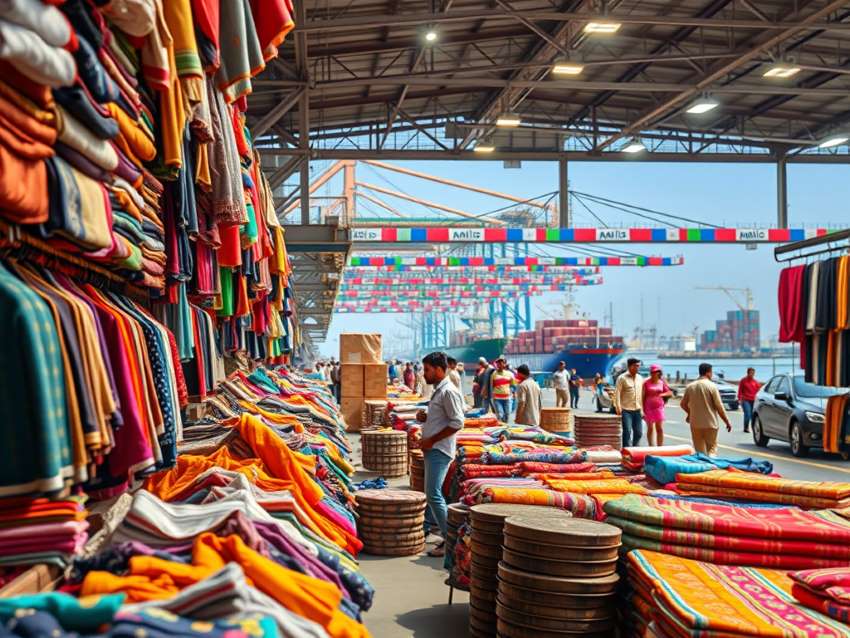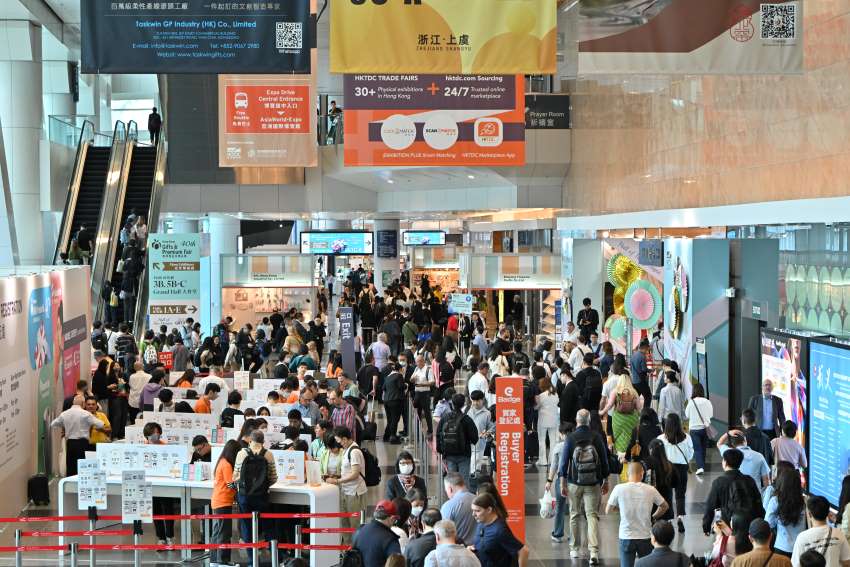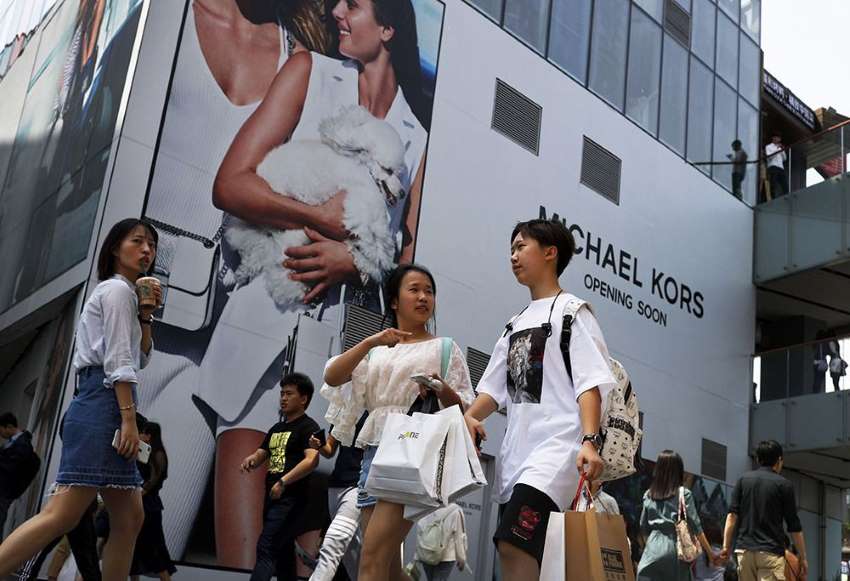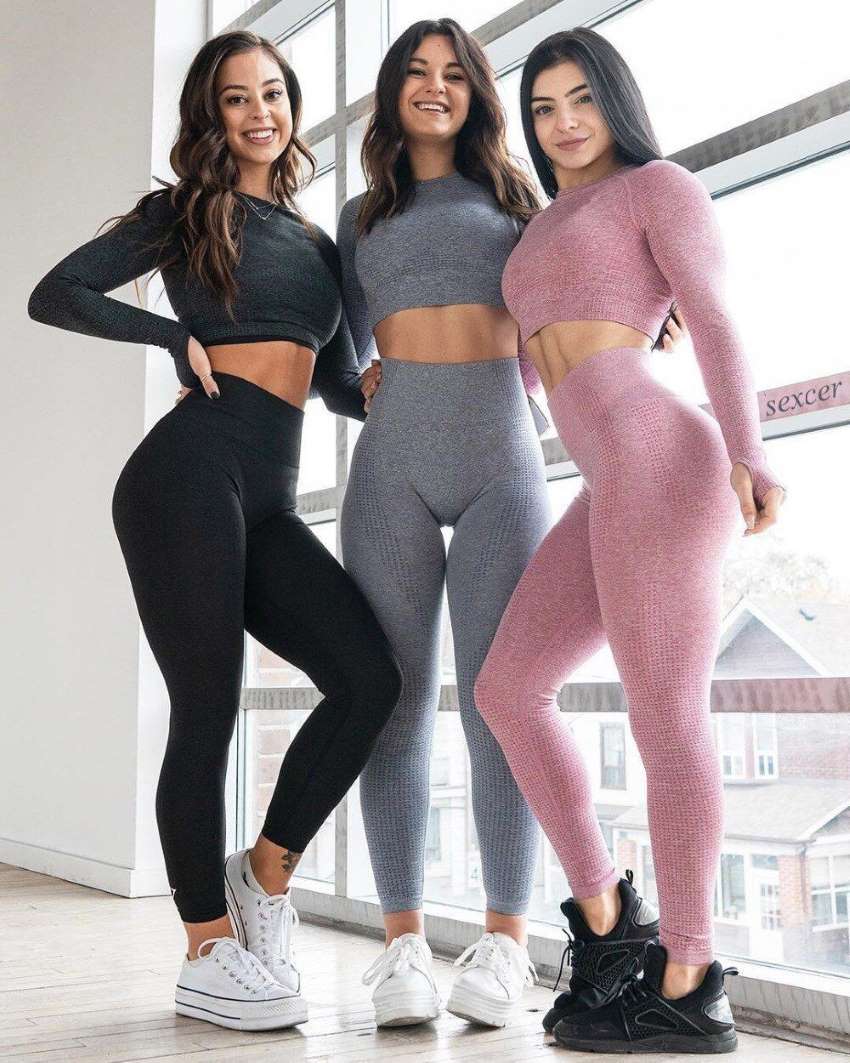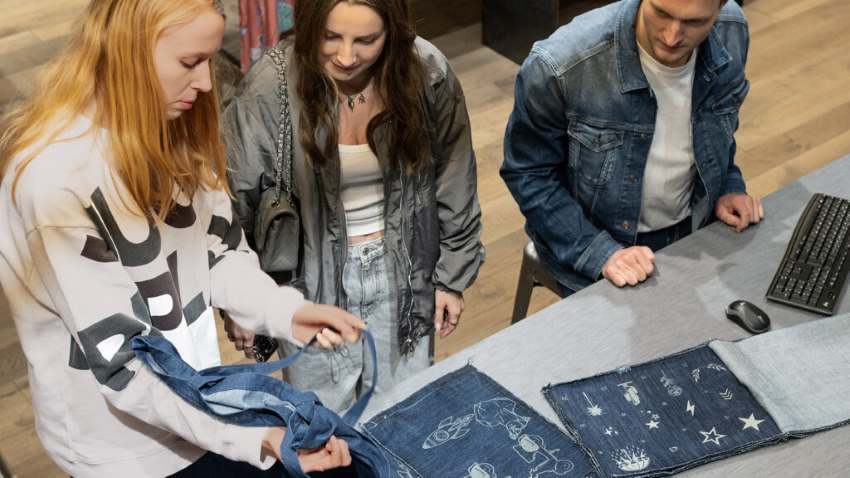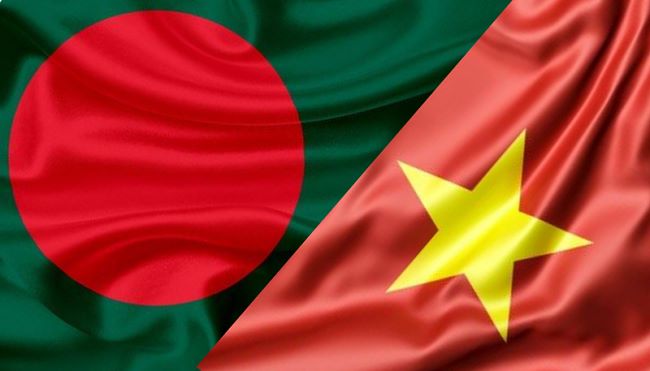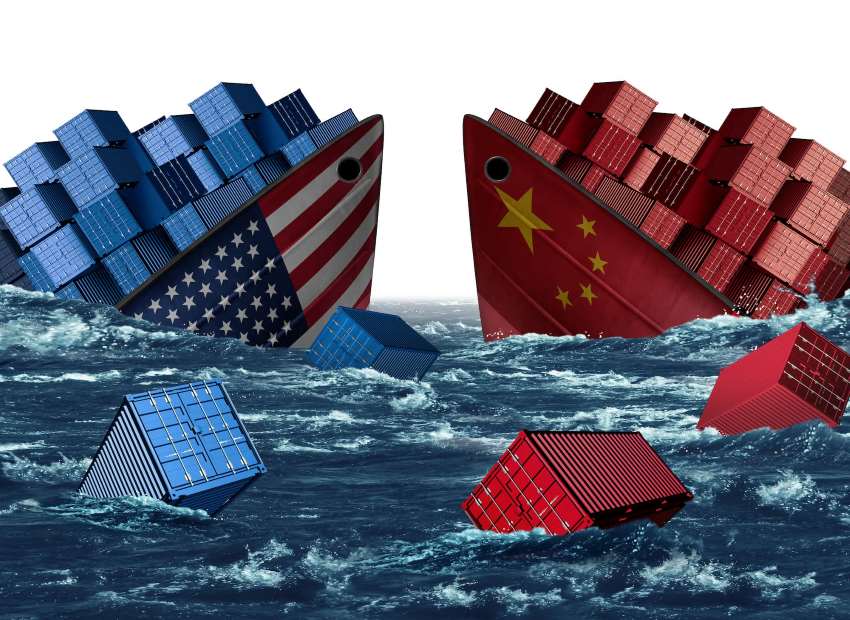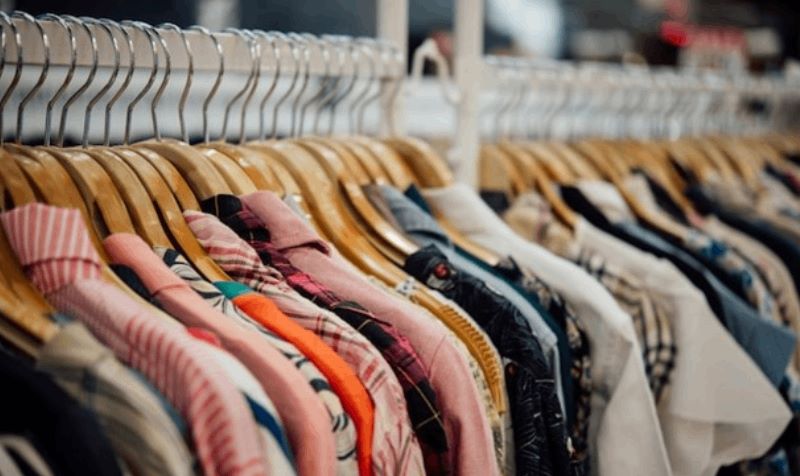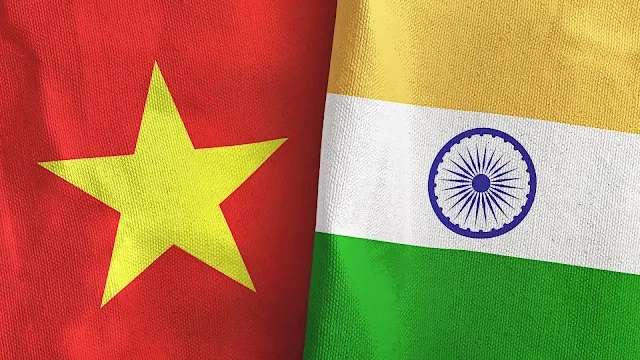FW
Davifil introduces Cotone Biolana OE, an innovative recycled yarn, at Filo 63. The Fall/Winter 2026/2027 collection highlights the company’s commitment to sustainability with a unique blend of recycled cotton and wool.
The cotton comes from garment scraps and fabric offcuts, while the wool is sourced from combed spinning waste. These materials are processed through open-end spinning to create an eco-friendly yarn certified by the Global Recycle Standard (GRS).
Cotone Biolana OE is available in four natural shades: Oak and Amber (brown tones) and Steel and Ash (gray tones). The darker shades (Steel and Amber) feature a 50 per cent Cotton - 50 per cent Wool composition, while the lighter ones (Oak and Ash) consist of 80 per cent Cotton - 20 per cent Wool.
Founded in 1973 in Biella, Italy, Davifil specializes in high-quality yarns for apparel, furnishings, and knitwear. The company blends innovation with sustainability, offering a diverse range of fibers, including linen, hemp, jute, wool, and silk. Using advanced spinning techniques - ring, open-end, dry, and wet spinning, Davifil ensures superior quality and versatility across its collections.
Sustainability remains central to Davifil’s mission. The company prioritizes renewable materials, eco-friendly treatments, and responsible production practices, backed by certifications like GOTS, GRS, RAF, and European Flax.
With Cotone Biolana OE, Davifil continues to push the boundaries of sustainable textiles, offering high-quality solutions without compromising environmental responsibility.
Valea Vadaleau will take over as Head of Business Development at the Aid by Trade Foundation on March 1, 2025, succeeding Christian Barthel, who retires in November after 18 years at the Hamburg-based foundation.
Vadaleau brings extensive experience in the international textile industry, specializing in sustainability and ESG frameworks. She previously led sourcing operations for Peek & Cloppenburg in Hong Kong and later advised companies on sustainable supply chains through her firm, KYBELE.
Tina Stridde, Managing Director of the Aid by Trade Foundation, welcomed Vadaleau, emphasizing her expertise in strategic planning and sustainable supply chain management. She also thanked Barthel for his dedication, noting his critical role in the foundation’s success.
Barthel, who started his career at the Otto Group in 1986, spent 26 years in Turkey and China before joining the foundation. Until his retirement, he will continue as Managing Director of ATAKORA GmbH, overseeing the marketing of sustainable cotton and cashmere standards in global supply chains.
A leading player in the textile sector, Globe Textiles reported a 53.7 per cent rise in net profit to $351,000 during Q3, FY25 as against $229, 000 in the corresponding period of the previous year. The company’s revenues rose by 46.2 per cent rise to $18.2 million during the quarter, compared to $12.5 million in the corresponding quarter of the previous year.
For 9MFY25 ended December 31, 2024, the company’s revenue increased by 20.8 per cent rise to $51 million from $42.3 million in the previous year. Their net profit increased by 56.6 per cent to $1.1 million during the period, highlighting the company’s sustained growth momentum.
Bhavik Parikh, Chairman and Managing Director, Globe Textiles, states, the company’s onsistent steady performance each quarter reflects its strategy, efficient operations, and continuous drive for growth. The acquisition of Globe Denwash, coupled with a focus on innovation, market expansion, and sustainability, has strengthened the firm’s position as a dynamic force in the textile industry. The company remains committed to delivering long-term value for their stakeholders and seizing new opportunities to enhance profits and ensure sustainable success, he adds.
Globe Textiles' steady performance is attributed to strategic initiatives, increasing demand, improved operational efficiency, and targeted market expansion. The rise in profitability is further supported by significant volume growth, effective cost optimization, and a well-defined product mix.
The company’s Growing Nevo division is set to expand its capacity for fashion-based tops, aligning with evolving market trends. Additionally, Globe Textiles is focusing on technology transfer and collaborations to enhance value for both existing and new markets. By leveraging these strategies, the company continues to adapt to changing industry dynamics while ensuring long-term sustainable growth.
Held from February 2-3, 2025 in Cairo, the inaugural Denimsandjeans Egypt exhibition attracted over 55 specialized denim industry companies from ten countries. These companies displayed cutting-edge products and innovative solutions.
The event facilitated networking and collaboration among industry insiders and experts. Seminars led by renowned speakers covered emerging trends, the future of denim, and circularity.
The two-day event attracted over 700 visitors, primarily top-tier buyers, representing more than 200 companies globally. Industry leaders showcased sustainable fabrics and advanced technologies. Global brands and retailers, including Gap, Next, Guess, Hugo Boss, Collin’s, VF Corporation, Mango, URBN, Zara, Bestseller, Miroglio, and Inditex, attended to explore new partnerships and opportunities.
The event's theme, ‘Blue Desert,’ highlighted the contrast between traditional denim and sustainable innovations, emphasizing craftsmanship and creativity.
A key feature of the exhibition was the Turkish Trend Area that showcased four distinct trends: ‘Camel Trek’ (earthy palettes and robust fabrics), ‘Eco Dunes’ (sustainable materials and finishes), ‘Mineral Fade’ (weathered looks), and ‘Sand Whisper’0 (soft hues and light washes).
Organized under the theme of ‘Blue Desert,’the Trend Area attracted attendees with innovations in the denim sector. It featured companies like Sharabati Denim, Master Textile Mills, MIC, Officina39, and Wiser Globe who displayed their latest creations.
Seminars featuring speakers like Nikita Raman, Hugo Boss; Walter Filipponi. Guess Europe, and Nicolas Prophte, Denim Deal provided insights into industry trends and innovations,.

The fashion and apparel landscape going through a transformation, says the latest Kantar BrandZ ‘Most Valuable Global Brands’ report. Luxury's digital prowess is increasing its lead, while the growing resale market is forcing brands to rethink their sustainability and circularity strategies.
Luxury’s digital mastering
The report reveals a clear trend: luxury brands are mastering the art of digital engagement, driving significant brand value growth. This digital fluency translates to seamless omnichannel experiences, immersive virtual shopping, and powerful influencer collaborations, resonating strongly with discerning consumers.
"Luxury brands have successfully leveraged digital platforms to create aspirational and engaging experiences, fostering strong emotional connections with their audiences," explains Jane Smith, Head of BrandZ Analysis at Kantar. "This digital mastery, coupled with their inherent brand equity, has propelled their growth despite economic headwinds."
For example, Louis Vuitton, a consistent leader in the BrandZ rankings, exemplifies the power of digital innovation. Their partnerships with gaming platforms, virtual fashion experiences, and engaging social media campaigns have broadened their reach and captured the attention of younger demographics. "Louis Vuitton's ability to seamlessly blend their heritage with cutting-edge digital initiatives has been instrumental in their continued success," notes Smith. "They've created a digital ecosystem that enhances the brand experience, fostering loyalty and driving sales."
The clear trends that have emerged are:
Luxury's digital drive: Brands with robust digital strategies have demonstrated significantly higher brand value growth compared to those lagging behind.
Experience over product: Consumers are valuing experiences and brand storytelling over mere product acquisition, with luxury brands excelling in this area.
Sustainability's growing influence: The report highlights a rise in consumer awareness and demand for sustainable practices, with resale and circularity gaining traction.
Resale a disruptive force
The report also sheds light on the rapid growth of the resale market, driven by increasing consumer awareness of sustainability and affordability. Platforms like The RealReal and Vestiaire Collective are challenging traditional retail models, forcing brands to consider their role in the circular economy.
"Resale is no longer a niche market; it's a mainstream phenomenon," states David Lee, a retail analyst specializing in sustainable fashion. "Consumers are actively seeking out pre-owned items, driven by both environmental concerns and the desire for unique, accessible pieces."
And brands are responding in various ways. Some luxury brands are launching their own resale platforms, aiming to control the secondary market and maintain brand integrity. Others are partnering existing resale platforms, leveraging their reach and expertise. Many are focusing on improving the durability and repairability of their products, extending their lifespan and reducing waste.
Table: Brand ranking
|
Rank |
Brand |
Key attributes |
|
Top Tier |
Nike |
Strong brand equity, digital innovation, successful athleisure positioning, and effective marketing campaigns. |
|
Top Tier |
Adidas |
Global reach, strong partnerships, focus on innovation and sustainability, and effective marketing. |
|
Mid Tier |
Zara |
Fast-fashion model, efficient supply chain, and responsiveness to trends. |
|
Mid Tier |
Lululemon |
Strong community building, high quality products, and focus on the athleisure market. |
|
Luxury Brands |
||
|
Rank |
Brand |
Key Attributes |
|
Top Tier |
Louis Vuitton |
Strong brand heritage, digital innovation, exclusive product offerings, and effective brand storytelling. |
|
Top Tier |
Chanel |
Iconic brand image, timeless design, and exclusivity. |
|
Top Tier |
Hermes |
High quality craftmanship, exclusivity, and strong brand heritage. |
|
Mid Tier |
Gucci |
strong brand recognition, and current trend setting designs. |
The Kantar BrandZ report reveals a dynamic and evolving fashion industry. Here digital innovation, sustainability, and circularity are no longer optional, they are essential for brands to thrive in the years to come. Brands that can authentically connect with consumers, embrace digital platforms, and prioritize sustainability will be best positioned for long-term success.
The report’s overarching message for fashion brands is clear: adapt or risk irrelevance. The threads of consumer preference are shifting, and brands must weave new strategies to stay relevant in a marketplace increasingly defined by digital experience and ethical consumption.
Textiles giant Trident Group plans to embark on a Greenfield expansion in India with an investment of Rs 1,000 crore earmamred in FY26 towards sustainability, modernization and asset enhancement initiatives.
Samir Joshipura, CEO, says, India is rapidly transitioning into a quality and brand sourcing hub with its domestic consumption also projected to increase significantly. The country is going through a transition from a so-called low-cost sourcing hub to a high quality and brand sourcing hub at the macroeconomic and global economic level, he adds.
The domestic consumption story puts India on a different trajectory, not comparable with other low-cost sourcing countries, Joshipura states. The Trident Group is conscious of the projected shift in demand between now and 2047, when India is projected to become the third-largest economy and in which direction the group needs to invest, he adds.
Currently the group’s business in India is valued at around Rs 500 crore but is set to increase significantly, Joshipura adds.
Of the company's top-line revenue of around Rs 7,000 crore, the textiles segment accounts for around Rs 5,500 crore to Rs 6,000 crore, with non-Indian business accounting for around 85-90 per cent and the US being the largest market.
Currently, India is a relatively small market with a only a few brands in the home textile segment compared to developed markets like the US and Europe, adds Joshipura.
In its budget this year, the Uttar Pradesh Government has allocated Rs 1 crore funds under the Chief Minister Textile Apparel Park Scheme to develop 10 new textile parks across the state.
These textile parks will be established by private companies in Kanpur, Barabanki, Hapur, Mau, Bhadohi, Sant Kabir Nagar, Gorakhpur, Ghaziabad, Meerut and Hardoi and help end India’s dependence on other countries for raw materials.
Alok Kumar, Principal Secretary, MSME Department, says these textile parks will be developed according to the industry’s demand in all the 10 districts.
The park in Kanpur will cater to the demands of the hosiery industry while the Bhadohi park will be developed according to the needs of the carpet industry. The parks in Mau and Barabanki will address the needs of the fabric and poly fiber industries respectively.
Similar parks will also be established in Hardoi, Meerut, Ghaziabad, Hapur, Gorakhpur and Sant Kabir Nagar, avers Kumar. They will be equipped with facilities like product exhibition, public convenience centre, dyeing, printing centre, administrative building, bank, ATM, rest house, zero liquid discharge and solid waste management, he adds.
Over all, these parks will house about 1,000 units and attract investment worth about Rs 8,000 crore. They will also provide employment to about 40,000 people.
The government had earlier launched a scheme to set up textile parks on private plots to promote the textile industry. Under this scheme, a provision was made to provide subsidy of up to Rs 25 crore for setting up textile parks on private plots. The work of setting up a textile park under this scheme in Shamli has almost been completed.
The National Council of Textile Organizations (NCTO) has strongly endorsed the Senate confirmation of Jamieson Greer as the next US Trade Representative (USTR), highlighting his role in tackling trade challenges.
NCTO President and CEO Kim Glas emphasized the urgency of addressing predatory trade practices that have contributed to 27 US textile plant closures in the past 20 months. She expressed optimism about working with Greer and the Trump administration to strengthen domestic manufacturing and the US - Western Hemisphere supply chain.
Glas also called for ending the de minimis trade provision, which allows 4 million packages daily to enter the US unchecked, often containing harmful or illicit goods. She stressed that Greer’s leadership is crucial in advancing policies that protect US textile jobs and manufacturing.
“Jamieson is an exceptional choice for USTR, and we look forward to collaborating on policies that expand the textile sector,” Glas stated.
Greer’s Senate confirmation is expected soon, marking a significant step for the US textile industry amid ongoing economic pressures.
During a Buyer-Seller Meet in Vijaywada, Andhra Pradesh State Handloom Weavers Cooperative Society (APCO) and the Tamil Nadu Handloom Weavers Cooperative Society (Co-optex) signed a deal to boost handloom textile sales in their respective states.
According to this agreement, the two organizations will sell each other's handloom products in showrooms across Andhra Pradesh and Tamil Nadu. Together, these two organizations will sell products worth Rs 9.20 crore (approximately $1.1 million) during the year as part of this initiative.
Tamil Nadu's handloom textiles will be sold at APCO, outlets and other businesses in Andhra Pradesh. Likewise, Andhra Pradesh's handloom textiles will be sold through Co-optex showrooms and various textile stores across Tamil Nadu.
Government officials from both states also signed agreements with multiple organizations from regions including Tiruchirappalli, Madurai, Erode, and Salem in Tamil Nadu, and with several firms in Andhra Pradesh.
The agreement will significantly benefit handloom weavers in Andhra Pradesh, states S Savitha, Minister. Following the signing of this agreement, she opened a buyer-seller conference organized by the Tamil Nadu government and visited handloom textile booths at the event.
Traditional handicrafts and handlooms exports from Kashmir are projected to rise to nearly Rs 3,000 crore by FY2025-end. Over the past two years, these exports increased to almost Rs 2,567 crore, as per a report by the Kashmir Handicrafts and Handloom Department.
Kani and Sozni shawls remained the top exported items with sales reaching Rs 1,105 crore over the past three years, according to a report by The Tribune. Exports of another signature product, hand-knotted carpets rose to Rs 728 crore during the same period. Other significant exports include chain stitch goods, wood carvings, and crewel embroidery.
To further boost exports, the Kashmir Handicrafts and Handloom Department operates a design studio at the Indian Institute of Carpet Technology and collaborates with the School of Designs and Craft Development Institute to create prototypes for contemporary products. Artisans can access these modern designs and packaging models to enhance their products for high-end markets, according a spokesperson of the department.
In addition to economic development initiatives, the region has implemented numerous welfare programs. It has trained 17,182 women in various handicraft techniques. The department also runs an education program for the children of craftspeople and provided 100 weavers with free, modern steel carpet looms under the National Wool Policy.

